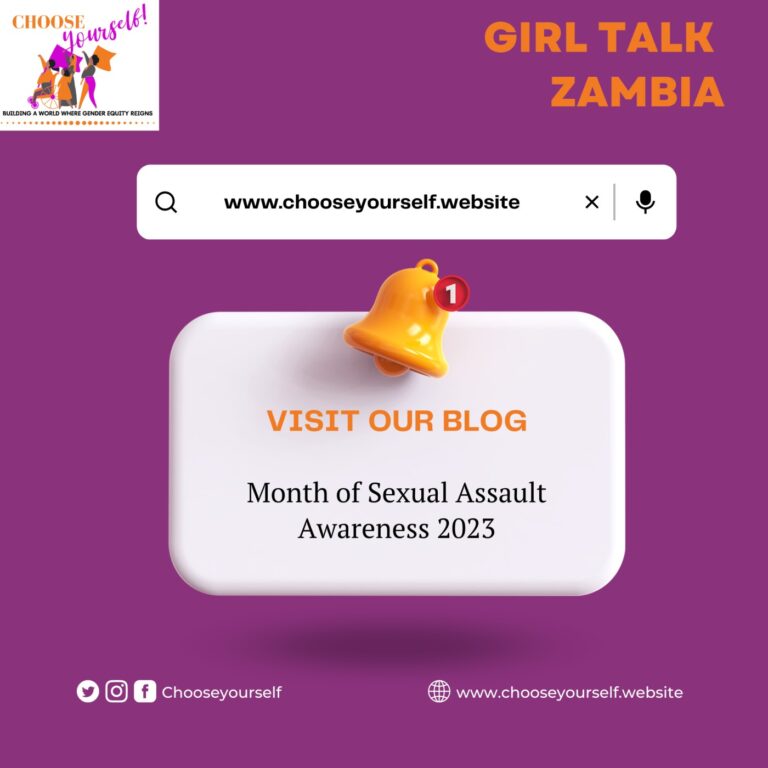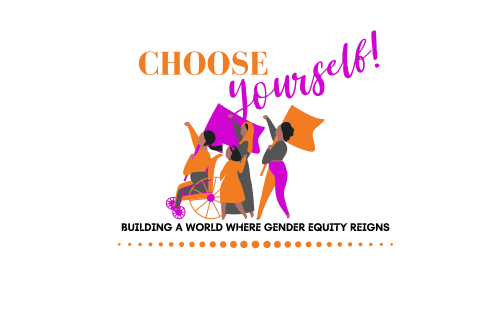Sexual assault is such a difficult thing to talk about. Whether it is a stranger, a neighbor, a friend or a family member, it is always a heavy experience for one to live through.
There’s a whole month dedicated to sexual assault awareness, but people still choose to behave like it doesn’t happen. You may wonder whether it’s because it’s easier to pretend, or they just don’t care.
Sexual assault awareness is dear to us as Girl Talk because it gives survivors a chance to voice their stories. Like one of our coordinators who shared her experience of how she experienced sexual assault as a child.
Her story did not involve threats or physical violence, in contrast to most survivor stories. She was deceived, coerced and manipulated into believing she could provide consent, although she was a child. To persuade her into the act, the perpetrators gave her gifts like sweets and money. Growing through the pain, she held herself responsible for what happened and felt that it was her fault for allowing herself to engage in these kinds of “games” with an adult male.
As she grew older, she had access to education and counseling, which helped her find her voice. By finding her voice and speaking up about her trauma, she began to heal. Although what happened to her cannot be changed, she is now able to move on without being affected by it. She now understands the value of consent and uses it.
Depending on the context, consent may have a more precise definition. For instance, consent in a sexual setting refers to two people’s agreement to engage in sexual behavior.
However, individuals all across the world do not fully understand what consent is or how to use it. Due to a lack of knowledge, both adults and children have been sexually violated or assaulted. For this reason, in this month’s Girl Talk newsletter, we have adopted the acronym for Planned Parenthood to explain consent: FRIES which stands for; Freely Given, Reversible, Informed, Enthusiastic, Specific.
Freely Given: both partners have the freedom to say yes or no. There is no pressure, force, use of drugs, alcohol or manipulation.
Reversible: anyone can change their mind at any time and ask to stop, even if you’re in the middle of a sexual act. Consent can be withdrawn, and that decision should be respected.
Informed: both partners need to know exactly what they are consenting to every step of the way. For example, if you consent to sex with a condom and your partner decides not to, then they have violated your consent.
Enthusiastic: partners should be excited & engaged in what is happening. If they’re not, STOP immediately. Pay attention to body language as well as what the person is saying and how they are saying it.
Specific: each act requires consent each time, even if you’ve done it before. Saying yes to one thing does not mean you have said yes to other things. If your partner says yes once doesn’t mean you have an all access pass.
Tips on Consent:
- If someone requests your permission, think about whether you want to do it or not before allowing it. Please remember that saying no is OK.
- If you’re unsure, say NO.
- You can only say YES when you’re completely and know what you’re consenting to.
- You should always check in with your partner to make sure that they are comfortable.
- Beyond words, consent is action. No matter what your partner is saying, think about how they are saying it.
- An enthusiastic yes might be an excited tone of voice, positive body language, or initiating the next step.
- Stop if someone is agreeing but appears uncomfortable or uneasy about it.
- If your partner is under the influence of alcohol or drugs or for some reason might feel coerced, that is definitely a reason to stop.
- Children are not capable of giving consent for any form of sexual activity.
What do you do when someone withdraws consent?
You STOP.
To choose not to educate is to encourage ignorance, and to encourage ignorance is to create abusers. Don’t allow a stranger, a neighbor, a friend or family member to be the next victim.


